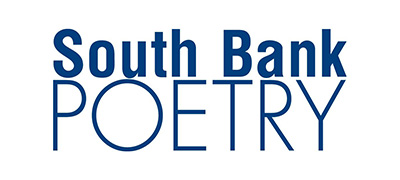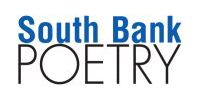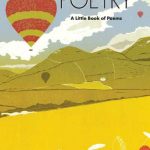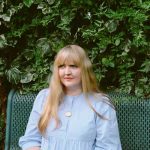Tea and Toast with Oliver Comins
I was thrilled when I received the news that Oliver’s debut poetry collection (Oak Fish Island) was out. As a fan of his work, and someone who has published it in South Bank Poetry, I wanted to see how his poems sat next to each other on the page. I was not disappointed.
His work is visually stimulating, creating whole worlds in my mind’s eye. He uses language with a simple clarity and focus, which adds to the cinematic experience as you read. However, his biggest talent is the control he exerts over each line – allowing each word to express itself, but quietly taking the reader on an unexpected journey.
After a playful and cheeky introduction, in the form of ‘Time for One More’, Oak Fish Island plunges us into a wonderland of scenes taken from everyday life. These scenes are captured so well that they become legend-like and timeless. I wanted to meet the artist behind the work and understand more about his writing.
1- When did your love of poetry and writing begin?
Three siblings grew up in a house of books. Our parents read, wrote, talked and listened. They had a passion for the theatre. Mum taught acting and voice. Dad was an economist by day and an author / actor “after hours”. I was immersed in the printed and spoken word from the beginning.
2- Why do you write poetry?
The way meaning can evolve is fascinating, with sense emerging from different combinations of words and sounds. Writing poems does something with that fascination. Poetry is talking and telling, but pared down and filled out, and the shaping spirit is nurtured by “the music of what happens”.
3- Where do you write your best poetry?
Writing occurs in many places. I encounter more flickering moments on the move than I do in my study. Some favourite poems began as scribbled notes on trains or buses. However, sitting at my desk is where “real” writing happens: practice, trial, error and, occasionally, something special.
4- How do you write your poems?
With care and respect. They usually start in long hand. I keep notebooks, but not consistently, and love fountain pens. Any writing instrument is perfect on the move. The computer stage is important, bringing a different kind of attention to phrase and form, although I miss typewriter discipline.
5- What other writers do you admire and why?
After decades as a writing activist at NAWE, Paul Munden has produced an exceptional body of his own poetry in the last few years. UK readers should import quantities of Chromatic (UWAP) from Australia – urgently. On a wider level, I love the breadth of gendered and peopled poetry being published today.
6- Who is your poetry hero?
I knocked on Pete Morgan’s door when I arrived in York: after 6 years in the army, he became a champion poet. My first tutor at York was Geoffrey Summerfield, who taught seeking and reading. Helena Nelson is a special reader and an exceptional poetry friend.







